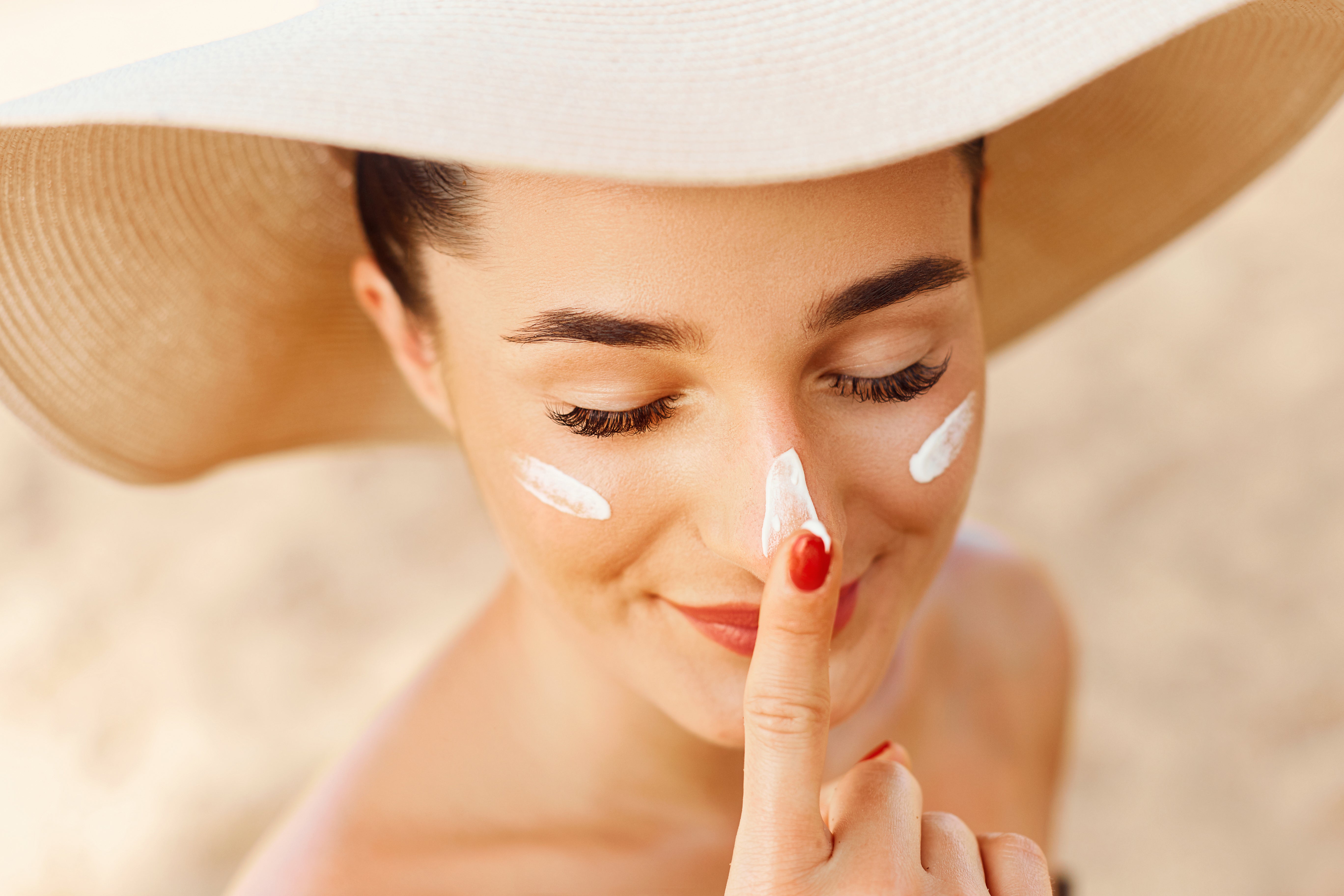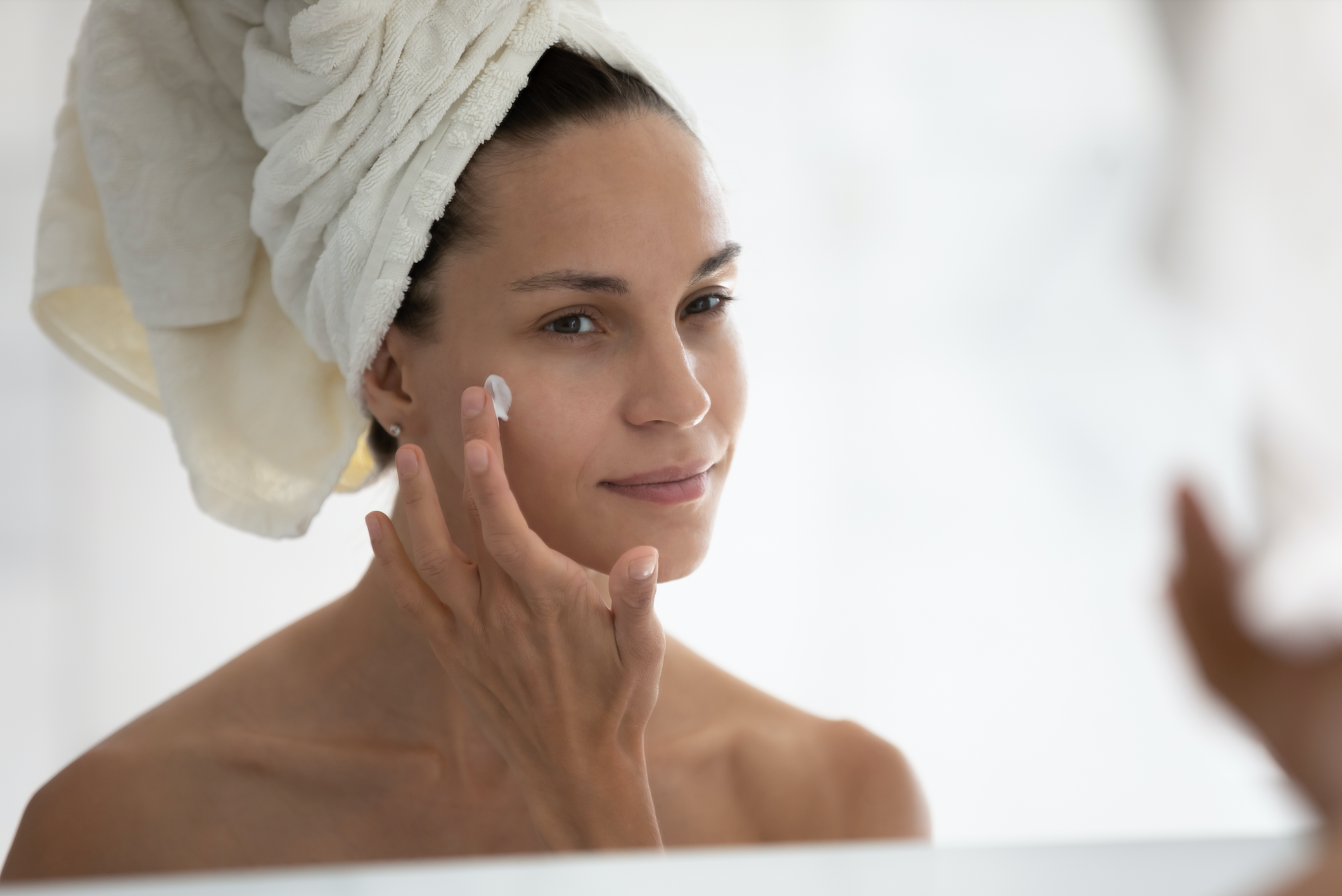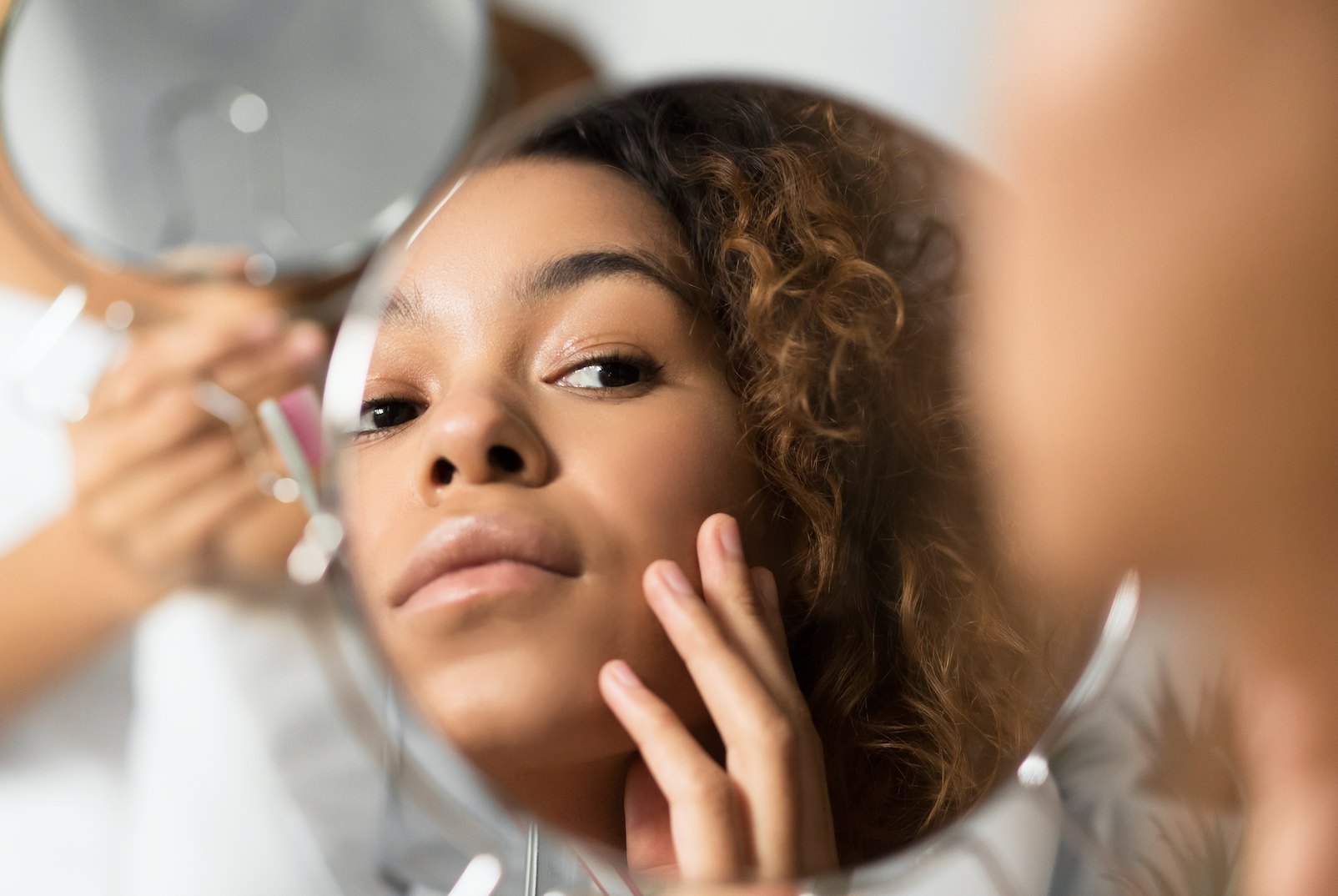
Benefits of Sunscreen for Your Face
Let’s start this read with a very short anatomy lesson. Our skin is the largest organ of our body. That’s right. Skin is an organ made up of active, living tissue that renews every 28-30 days. Skin protects our bones, organs, muscles, our entire bodies from potential damage and harm by acting as a shield, insulating us from extreme temperatures, harmful environmental chemicals, and damaging sunlight. Yet, it’s crazy to realize that our skin is the only organ that is unprotected.
Think about it - our skulls protect our brains from injury, our ribs protect our lungs and heart and our spine protects the spinal column. But our skin is completely exposed and unprotected. That’s why it’s our job to give our skin the protection it needs to stay healthy and beautiful forever.
There are very few things in life more beautiful than the flawless, porcelain skin we had upon entering this world at birth. And sadly, it doesn’t last forever. If you think about it, there are only two things in life that are unavoidable - death and aging. I know, you thought I was going to say death and taxes. But let’s face it, if you’re willing to accept the consequences of not paying taxes, I guess you don’t have to pay them. To that I say, no thank you. I think I’ll keep writing my checks to Uncle Sam and stay on his good side.
Back to aging - we can 100% help ourselves slow down the aging process and minimize potential damage to our skin because let’s be real, nobody wants to look 70 years old when they are 40 because his/her skin looks like a shriveled up grape. Fortunately, it’s never too early to take skincare seriously and start maintaining the health of this most precious asset.
The most obvious and notable damage can occur from our friend, Mr. Sun, and I feel like he often gets a bad rap about this. To be clear, our bodies do benefit from the sun in that its rays stimulate Vitamin D production, which helps us to increase the absorption of the calcium and phosphorus we get from the food we eat. So that’s good, and it is recommended to expose the body SAFELY to the sun for this purpose. Plus, for whatever reason, society has associated a suntan with good health.
How often have you bumped into a friend after a day at the beach, and they say, “Oh, you’re so tan and look so healthy.” Well, I wonder what they’ll say when they see you 20 or 30 years later? That dialog might go something more like this, “Wow, she spends way too much time out in the sun.” Of course, that will just be internal dialog, as I hope a friend won’t say that to you. So how do we safely get sun exposure for its benefits while not damaging our skin simultaneously? It’s super easy!!! We adopt a daily skincare routine that begins with a broad-spectrum sunscreen for your face to protect your skin from the “bad” side of Mr. Sun - his harmful ultraviolet rays.
Let’s start with understanding some key abbreviations:
UV Rays: “Ultraviolet radiation. Invisible rays that are part of the energy that comes from the sun, can burn the skin and cause skin cancer.”
SPF: “SPF stands for Sun Protection Factor, and the number beside it indicates how well the sunscreen protects skin against sunburn. It is not an indicator of how long you can stay out in the sun. Rather, it indicates how much longer it takes untanned skin to start to redden with sunscreen lotion applied compared to how long it takes to start reddening without it.”
The sun emits two types of rays - UVA and UVB - both of which are damaging to our skin. It is also worth noting that tanning beds emit UVA and UVB rays as well. So whatever is said here regarding skincare from the sun is also applicable to tanning beds.
UVA Rays emit the lowest energy rays, but those rays penetrate deeply into the inner cells of the top layer of our skin. In the short term, this is when tanning and sunburns occur. In the long term, you can experience premature aging (brown spots), wrinkles, and some skin cancers. UVA rays make up approximately 95% of the sun’s rays.
UVB Rays emit medium energy and affect the cells on the top layer of our skin. The short-term effect is a delayed tan or a sunburn, potentially with blisters. Long-term effects are the same as those with UVA rays - premature aging, wrinkles, and skin cancer. UVB rays only make up about 5% of the sun’s total rays.
When we spend too much time outdoors or in the sun, we can burn from the intense rays of the sun. When we have a sunburn, our skin turns red and feels hot because the cells have been damaged. So your body’s natural repair process kicks in and starts sending additional blood to the burned areas to heal the damaged skin. Eventually, your skin will begin to get flaky and peel off. That’s the natural process of sloughing off the dead skin damaged by UV radiation. The outer layer of our skin has cells that contain a pigment known as melanin.
Natural melanin is what determines our skin, hair, and eye color. It also naturally protects our skin by absorbing or blocking the sun’s UV rays. When the rays are absorbed or blocked, the DNA of our skin cells cannot be damaged and can potentially prevent us from getting skin cancer. However, overexposure to these harmful UV rays requires additional protection with the use of a broad-spectrum sunscreen.
How Sunscreen Works
So you are probably wondering how SPF works. Broad-spectrum sunscreen protects your skin against both UVA and UVB rays. The FDA recommends the use of an SPF minimum of 15. However, “Dermatologists recommend using a sunscreen with an SPF of at least 30, which blocks 97 percent of the sun's UVB rays. Higher number SPFs block slightly more of the sun's UVB rays, but no sunscreen can block 100 percent of the sun's UVB rays.”
To minimize penetration of these harmful rays, and minimize sun-related skin disorders and uneven skin tones, applying sunscreen should be incorporated into your daily skincare routine, not just when you are going to spend the day at the beach or an outdoor sporting event. Additionally, and especially if you are outside for an extended time, sunscreen should be re-applied throughout the day to ensure protection. M
Types of Sunscreen
The good news is sunscreens have come a long way since you were a child. So don’t worry; you won’t leave the house with an oily, shiny face smelling like the tropics of Hawaii. New skincare sunscreen products are safe and comfortable to use every day. Some sunscreens even help with acne. However, you should select a sunblock that will work best with your skin type.
- Sensitive, allergy, or acne-prone skin: You should opt for a fragrance and preservative-free product.
- Dry skin: It’s best to use a moisturizer before applying your SPF. There’s not one single effective product for every type of skin, so be sure to make your selection thoughtfully and carefully, so the use of sunscreen is seamlessly incorporated into your skincare regime.
When to use Sunscreen
Now, let’s not fool ourselves into thinking we only need to apply sunscreen in the spring or summer months when the sun is most evident and hotter. On cloudy days, up to 80% of UV radiation still reaches the earth. In the winter, the ozone layer is thinner, providing less defense against the sun.
Oh, and do you need to wear sunscreen indoors - Yep - UV light penetrates window glass and can burn your healthy skin! Who knew? Have you ever gotten back from a day on the slopes in the mountains and realized your face is sunburned even though the sun wasn’t even out? Again, the atmosphere in high altitudes is thinner, so you can still easily get sunburned.
Have you ever wondered why farmworkers in rural areas of the country wear long sleeves and long pants, and they’re usually dark colors? It’s because thin fabrics like we wear in warmer weather - silk, cotton, crepes - allow light through and can penetrate your skin. So people who spend every day working outside will usually be fully covered in dark clothing to prevent sun damage and skin aging.
So, not to beat a dead horse, but let’s reiterate that broad-spectrum sunscreen should be applied daily (and frequently throughout the day), and is necessary for the overall general health of your skin. The problem with sunscreen is you won’t see its benefits for decades, but until then, you’ll be able to enjoy radiant, youthful, healthy-looking skin that others will envy. Your face will continue to have that fresh-faced, clear glow you were born with.
Your body will still get the Vitamin D needed to keep you healthy and strong until you are old and accepting of the fine lines that will have appeared as signs of wisdom and experience rather than years of damage due to overexposure to the sun. So just get into the habit of applying sunscreen daily as if your life depended on it - because someday it might!
Sources:
- Medical Definition of UV radiation - MedicineNet.https://www.medicinenet.com/uv_radiation/definition.htm. Accessed 5 Jul. 2021.
- What does the SPF rating mean? - Curious." 23 Oct. 2017, https://www.science.org.au/curious/people-medicine/what-does-spf-rating-really-mean. Accessed 5 Jul. 2021.
- UVA vs. UVB Rays: What's the Difference? - Healthline." 12 Sep. 2019, https://www.healthline.com/health/skin/uva-vs-uvb. Accessed 5 Jul. 2021.
- Sunscreen FAQs - American Academy of Dermatology." https://www.aad.org/public/everyday-care/sun-protection/sunscreen-patients/sunscreen-faqs. Accessed 5 Jul. 2021.






